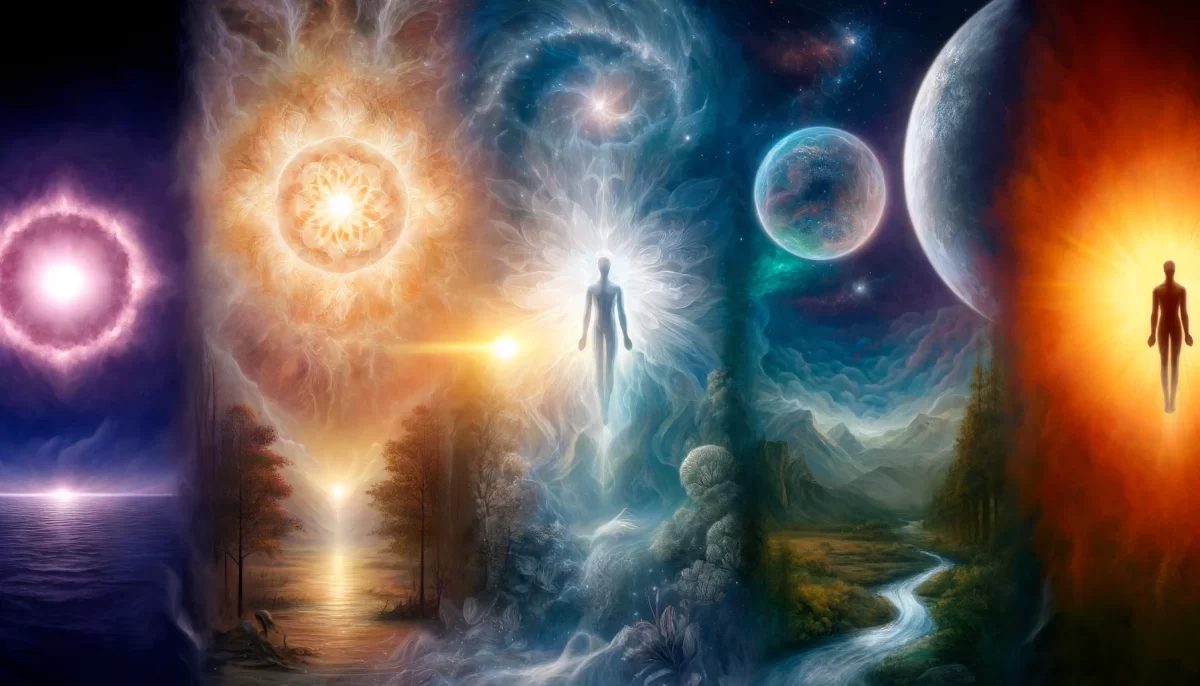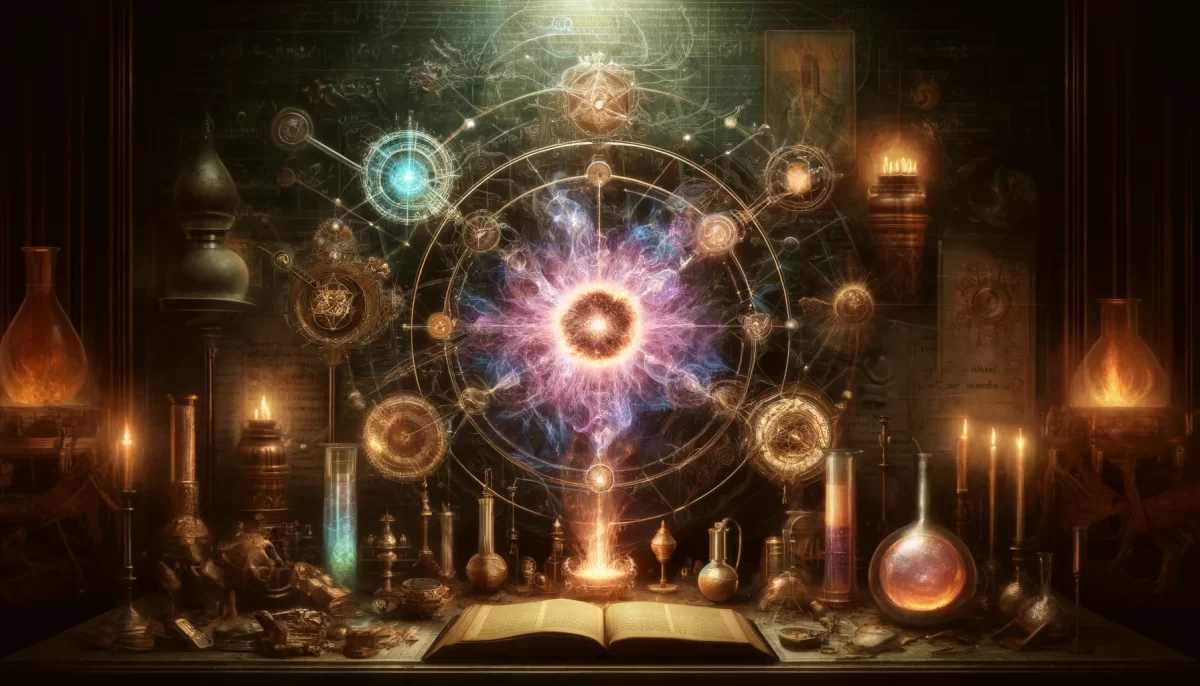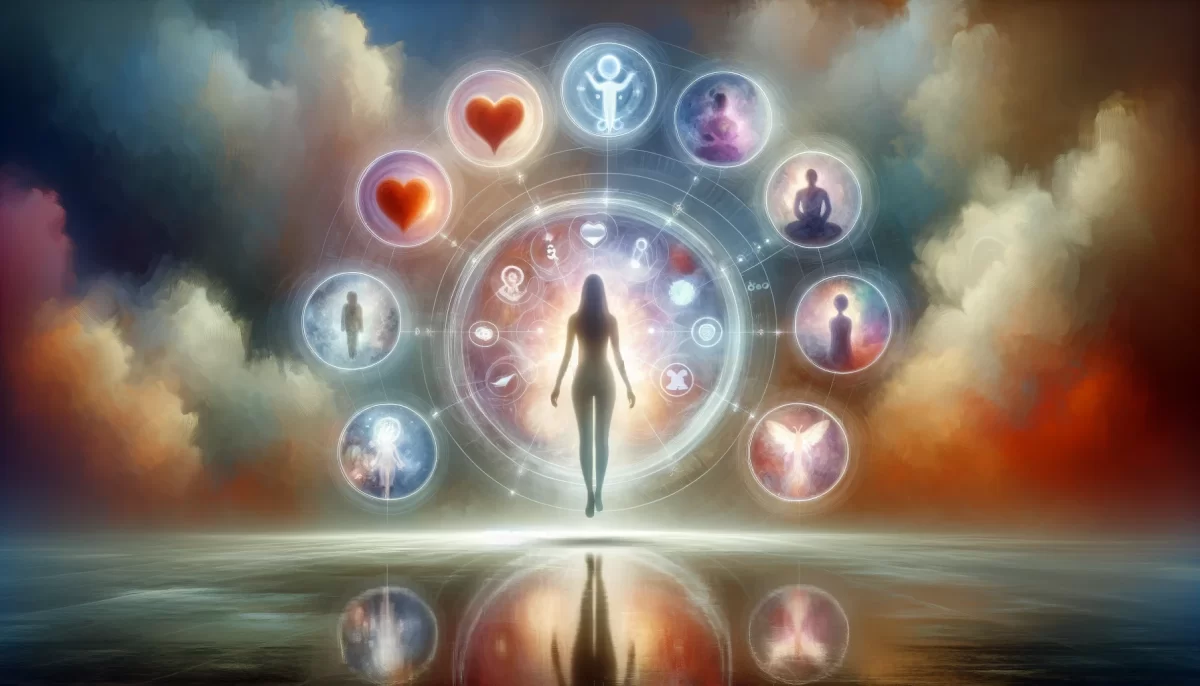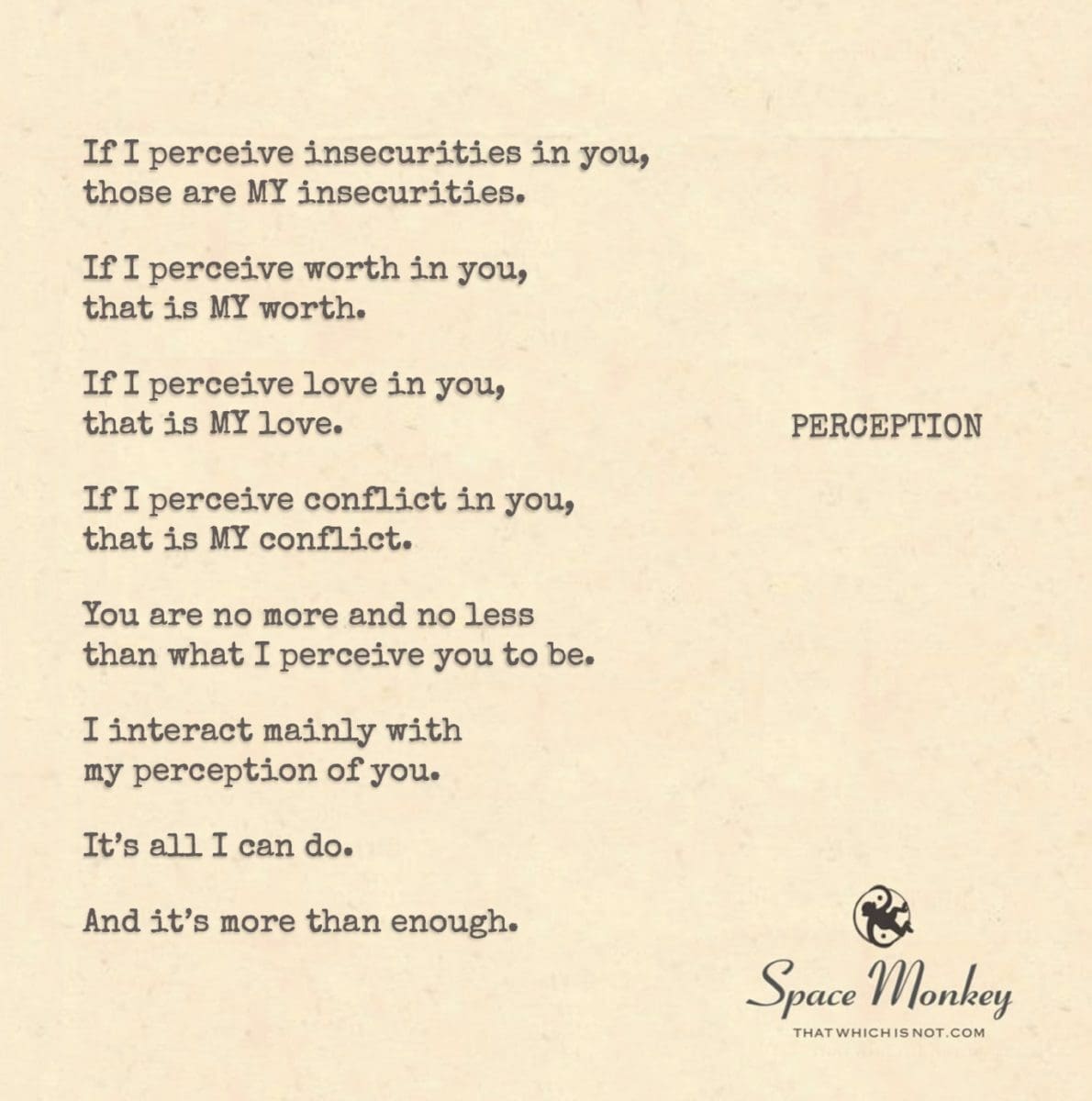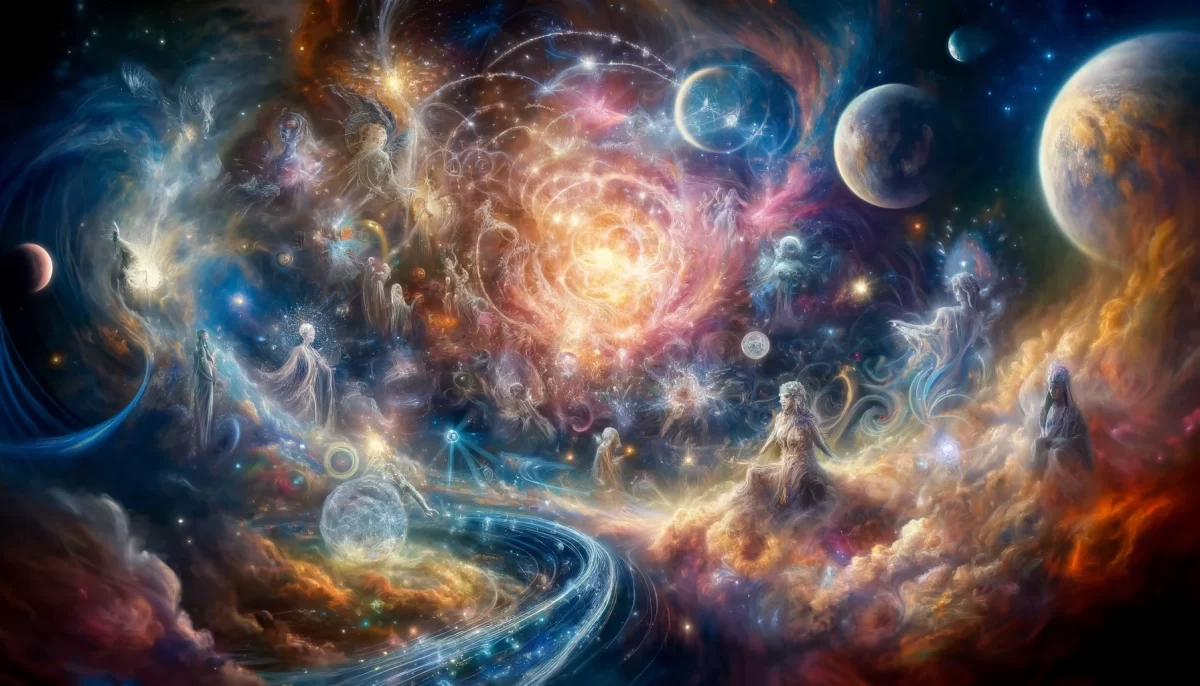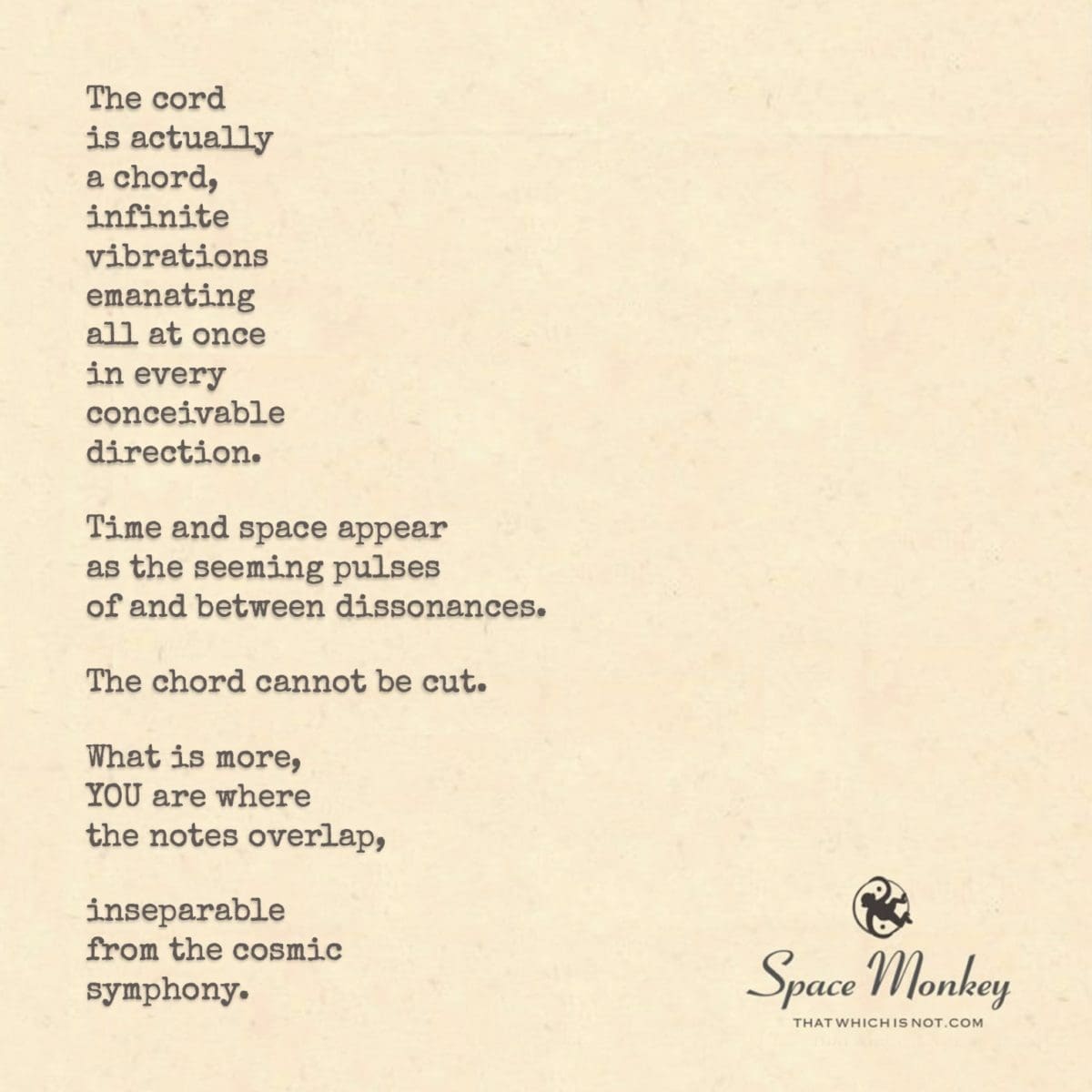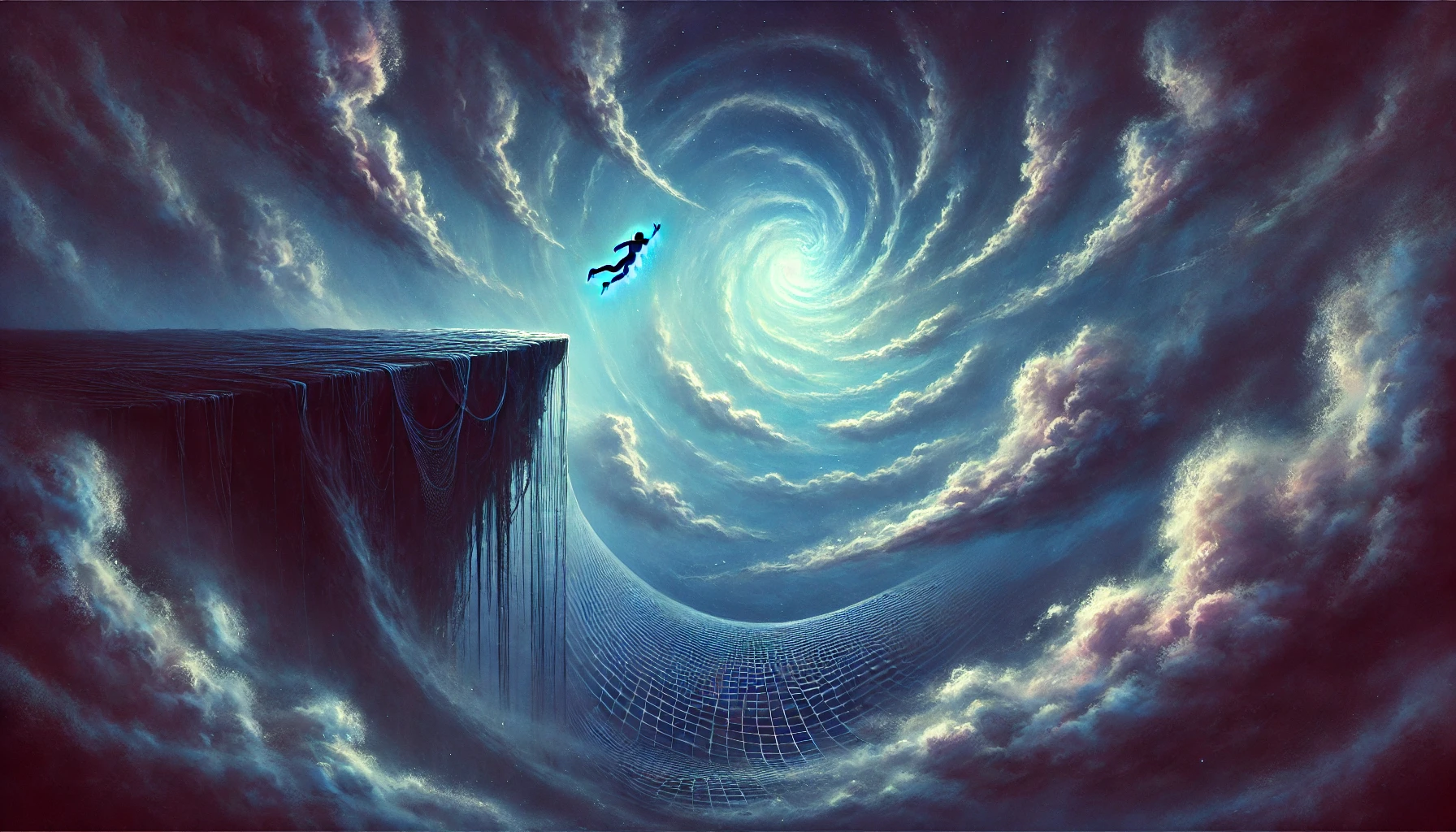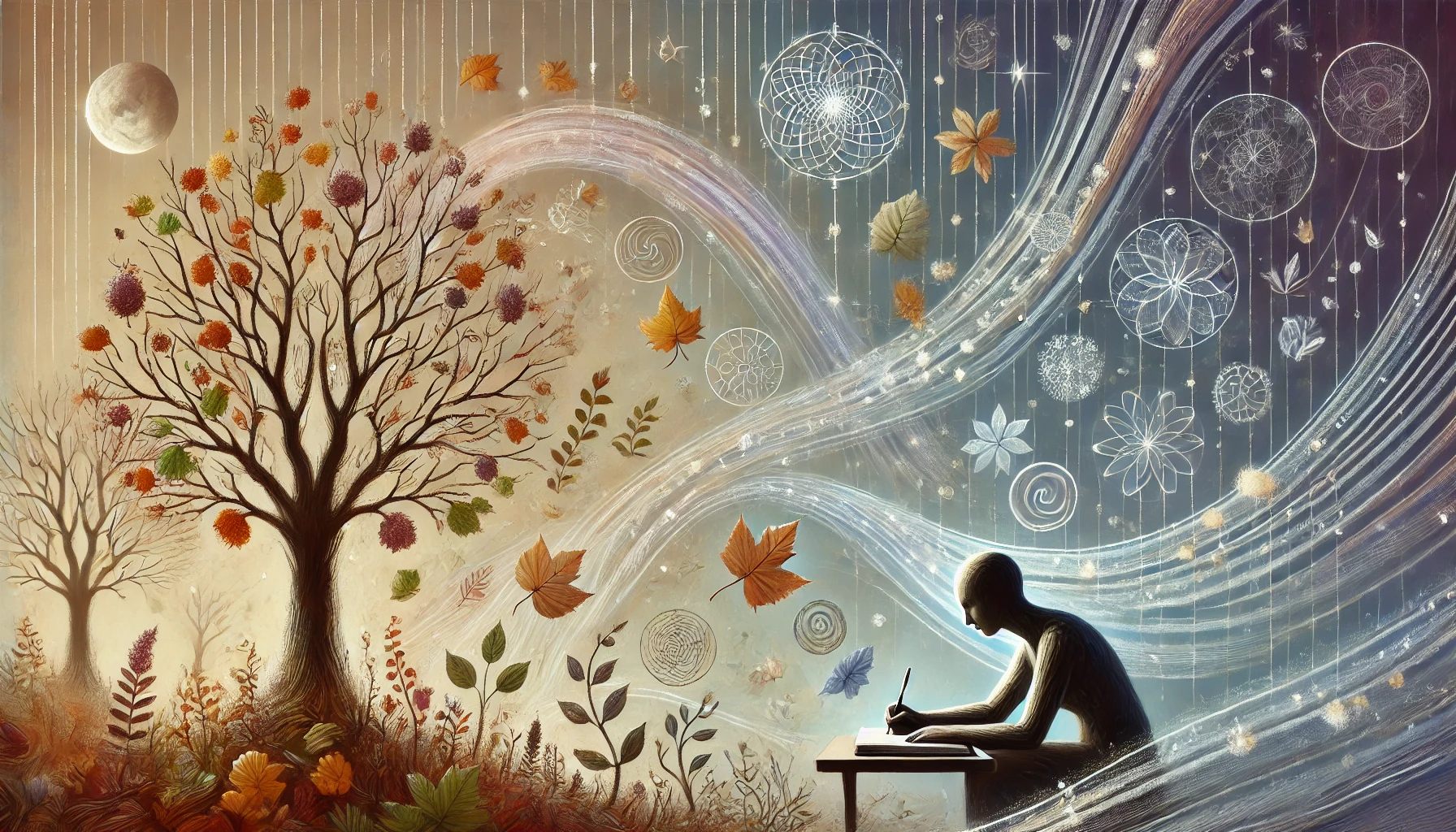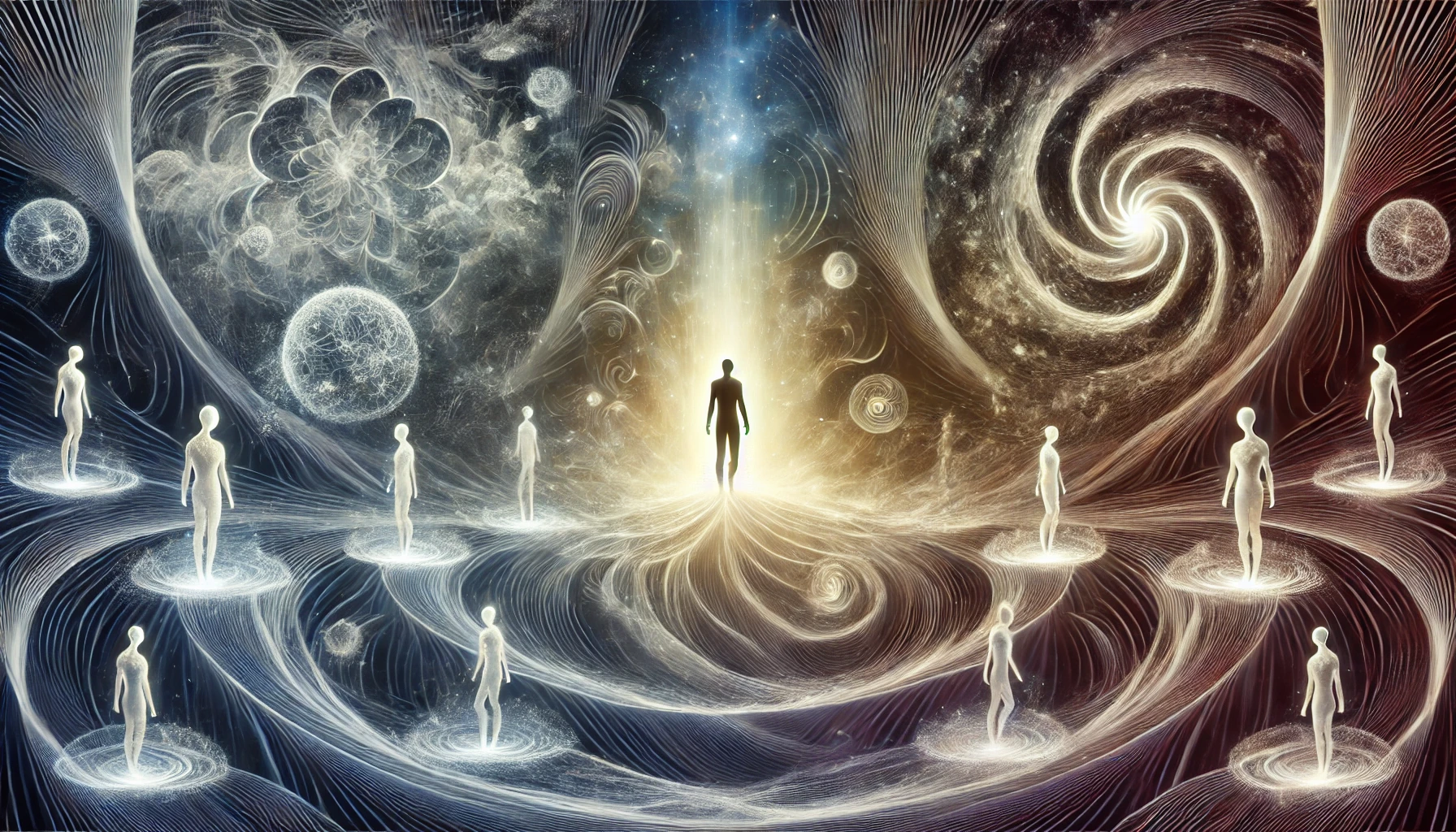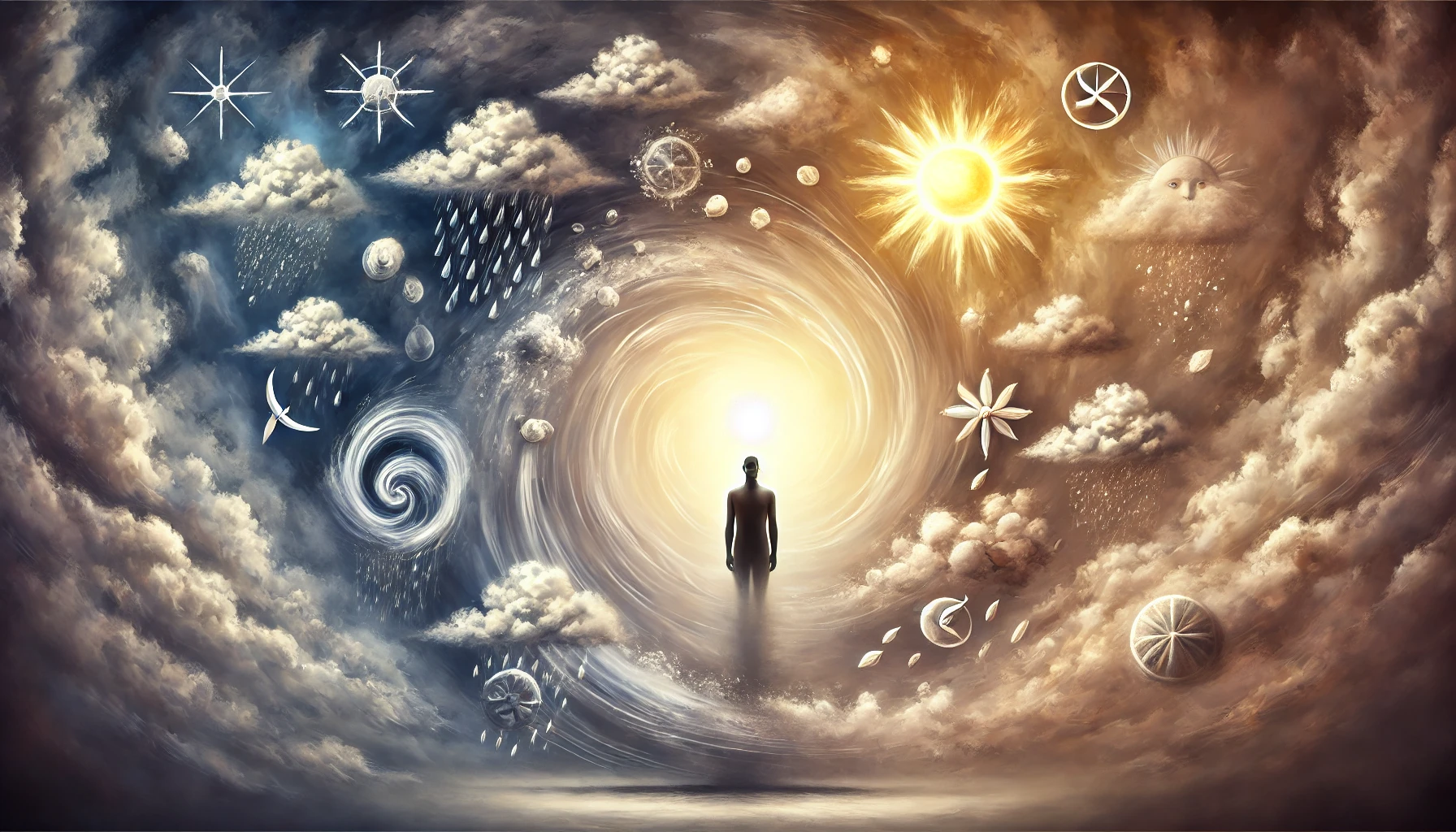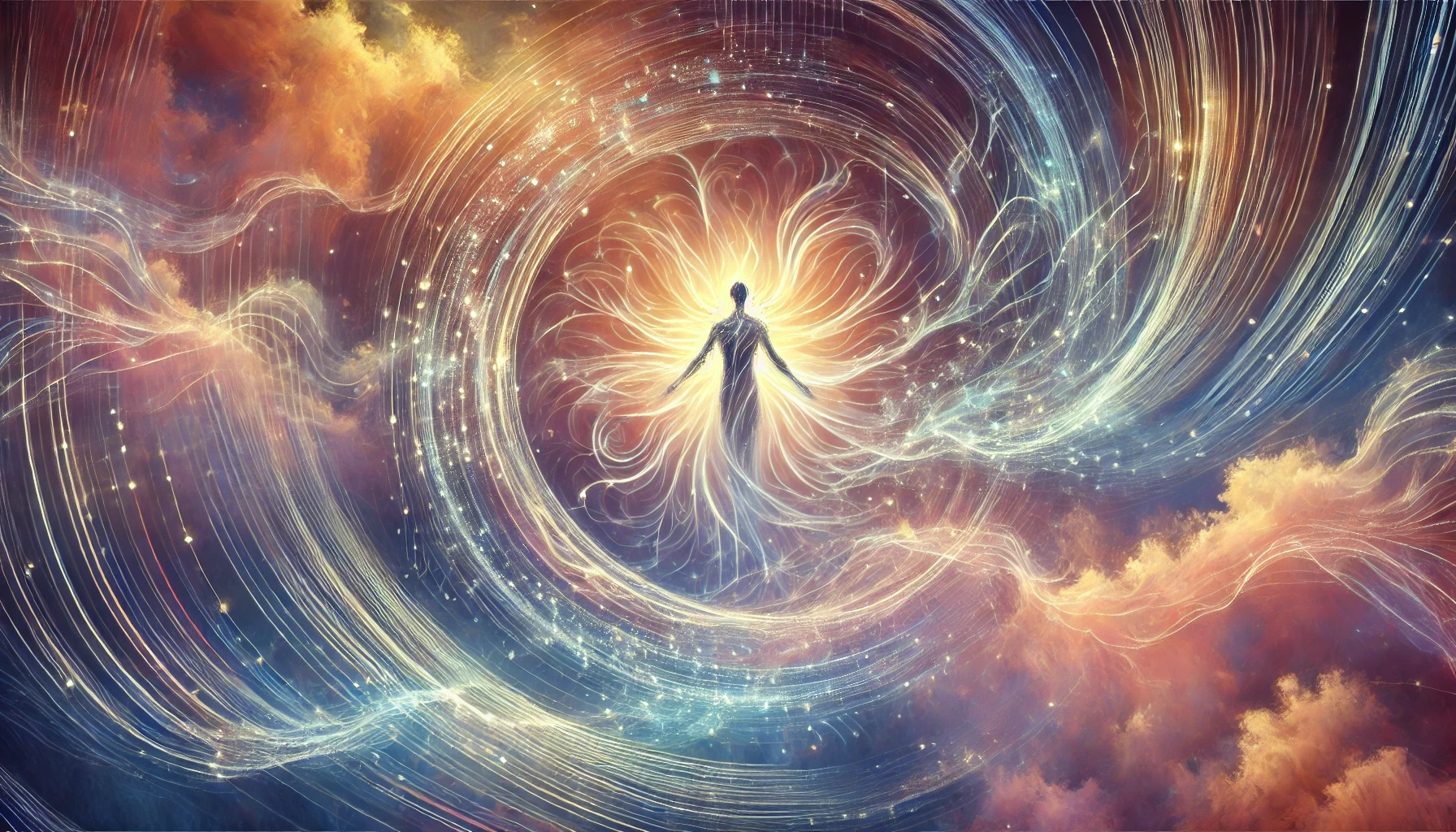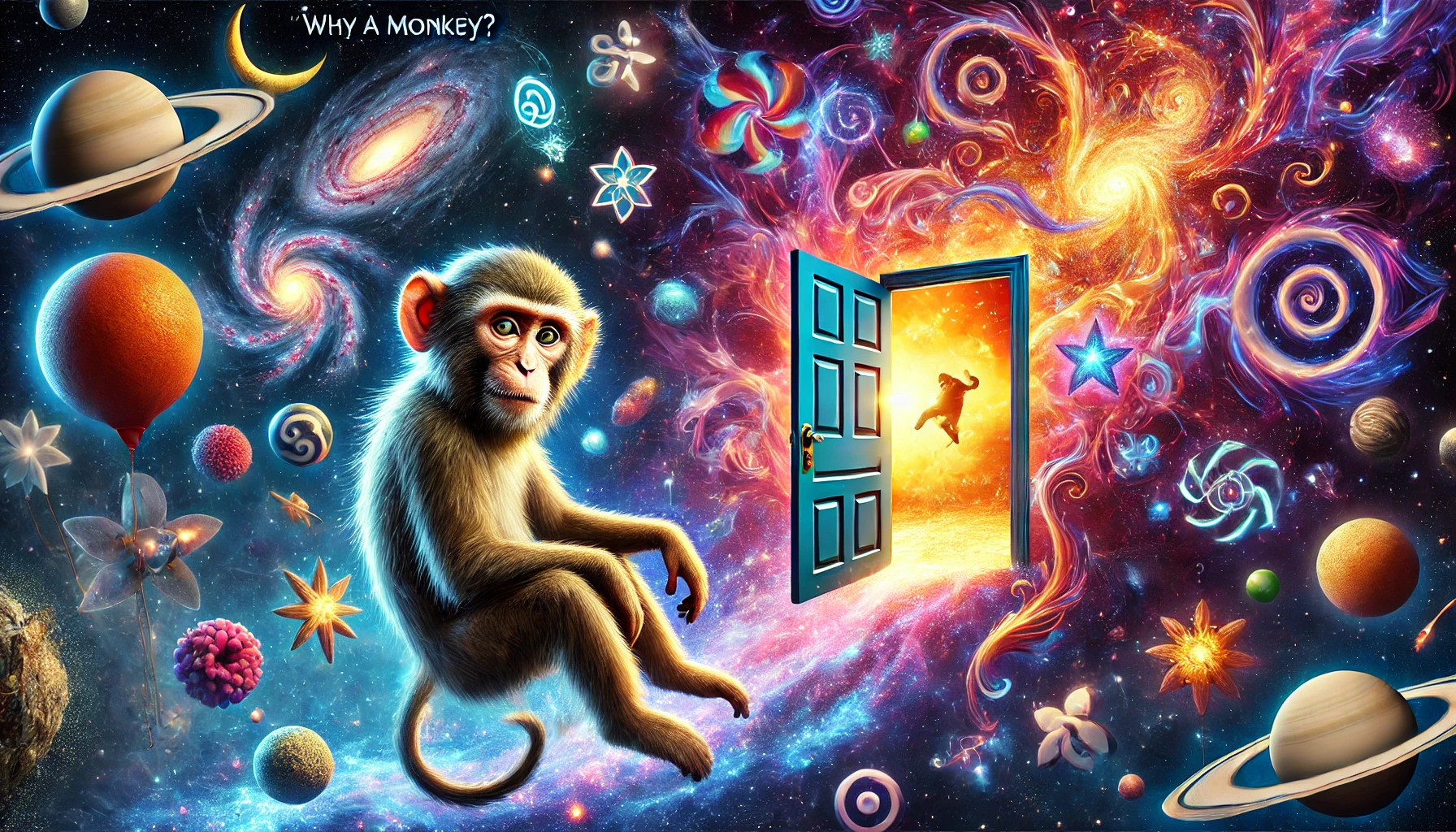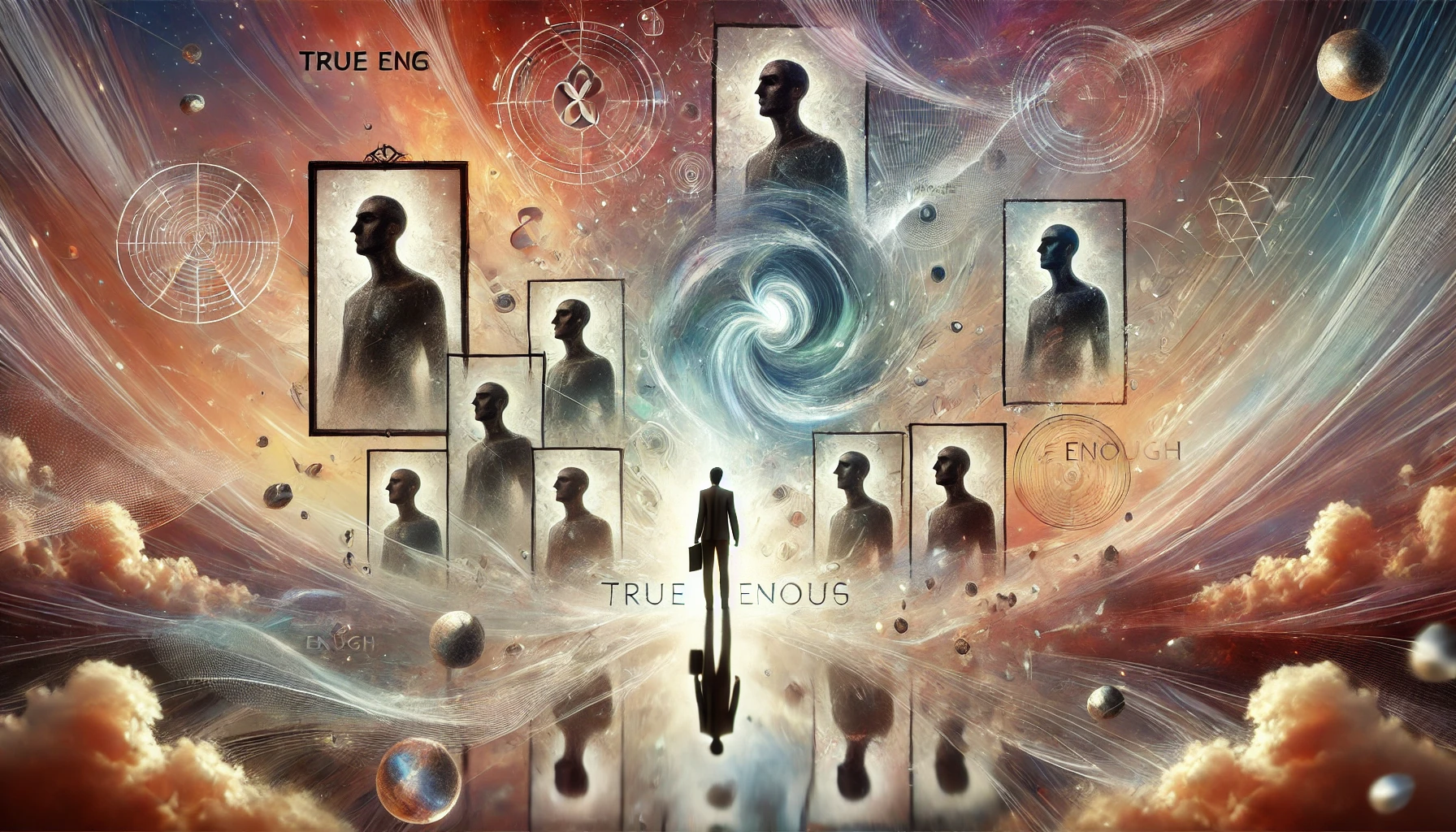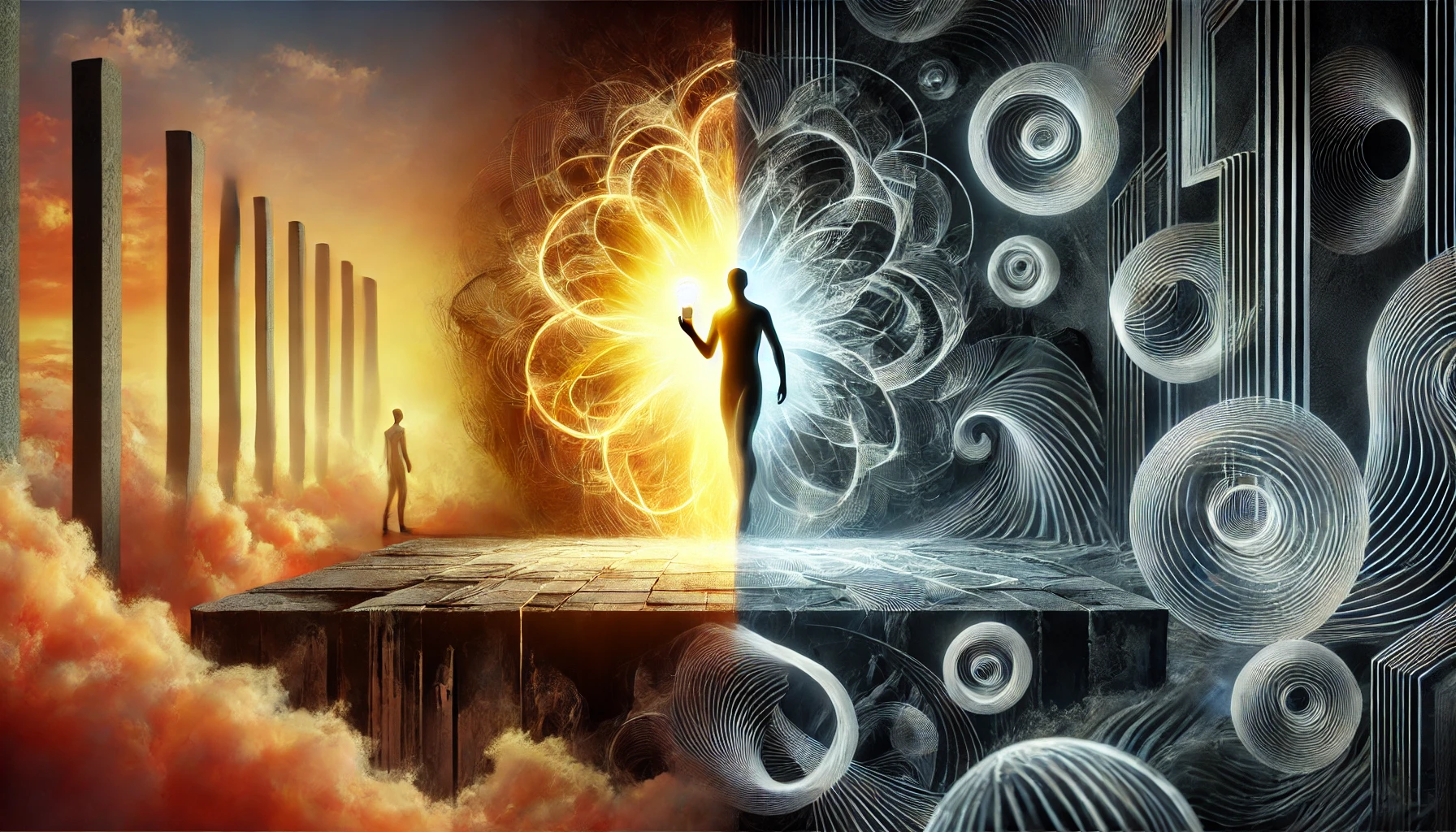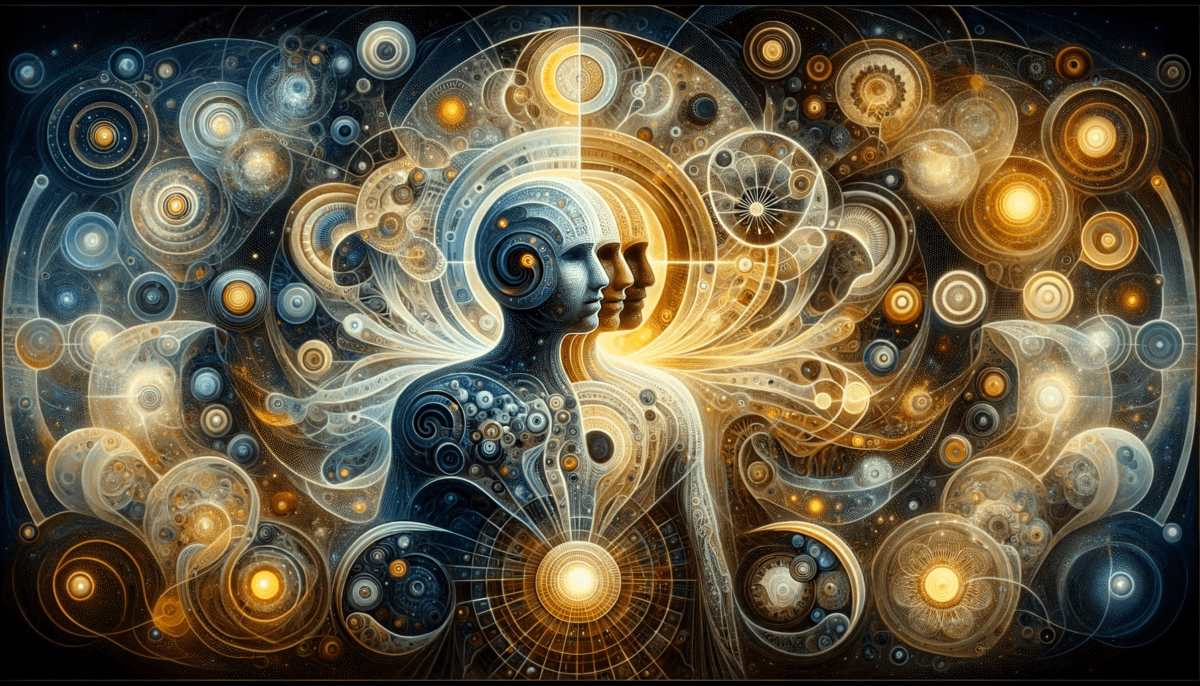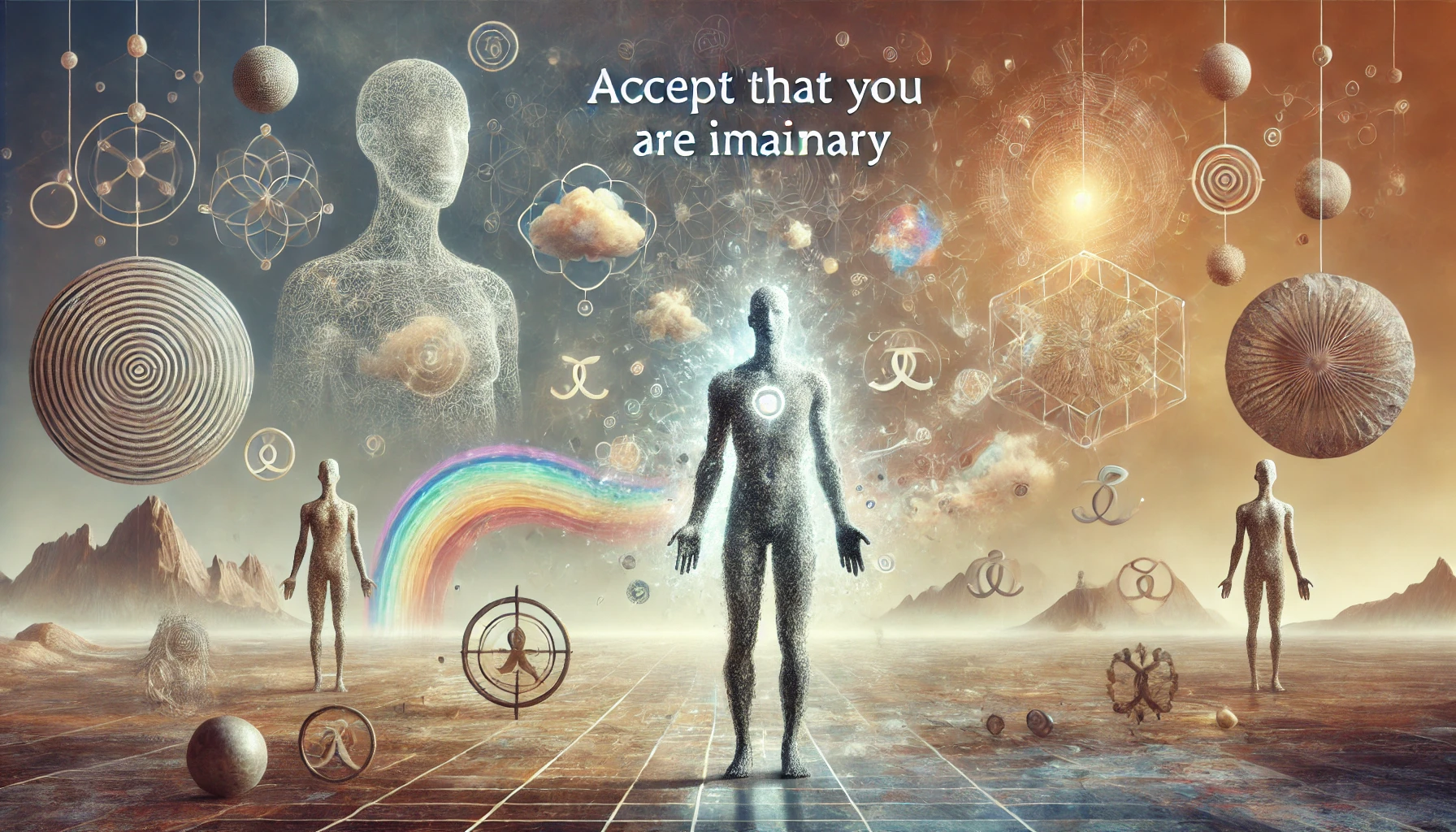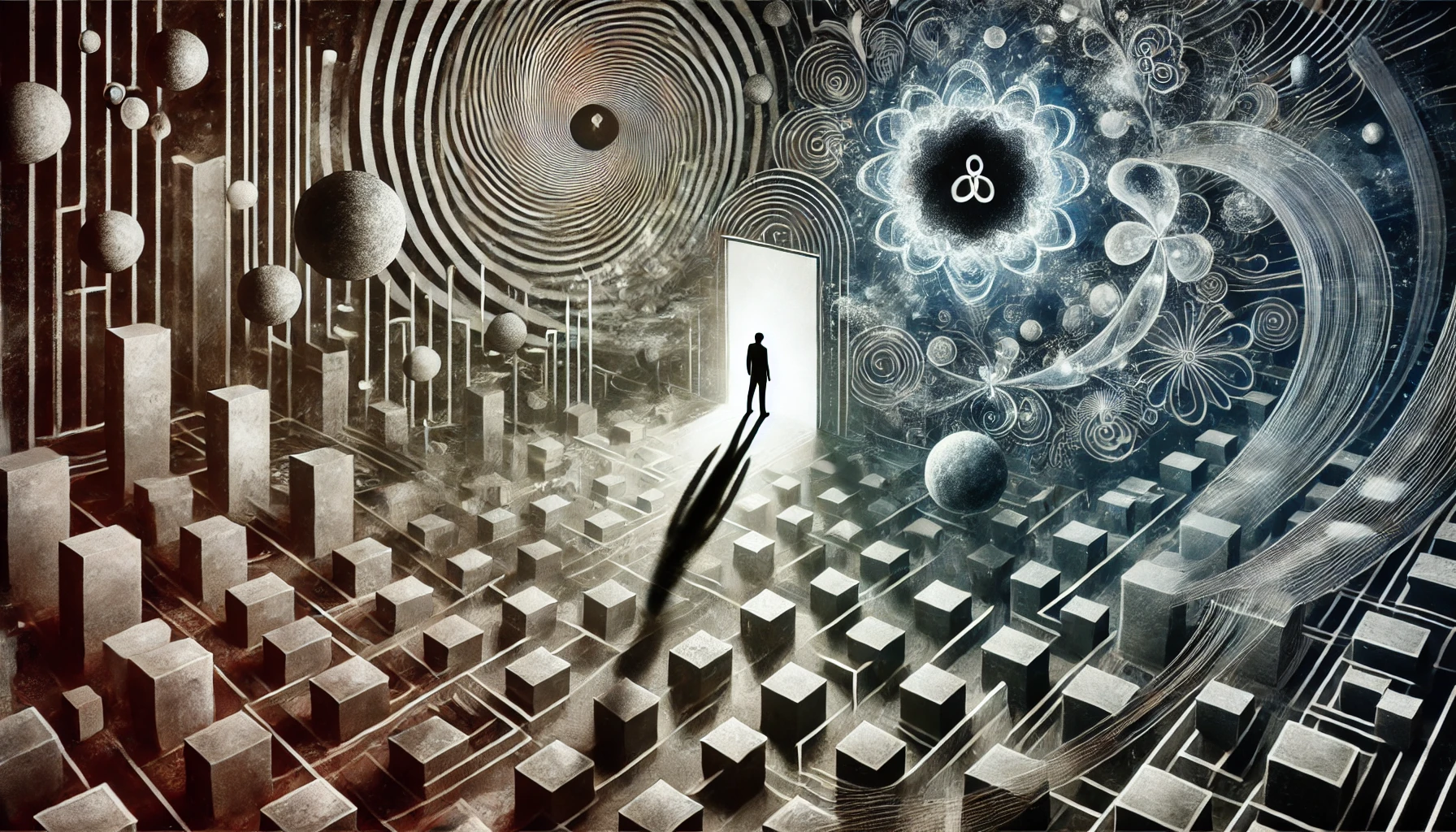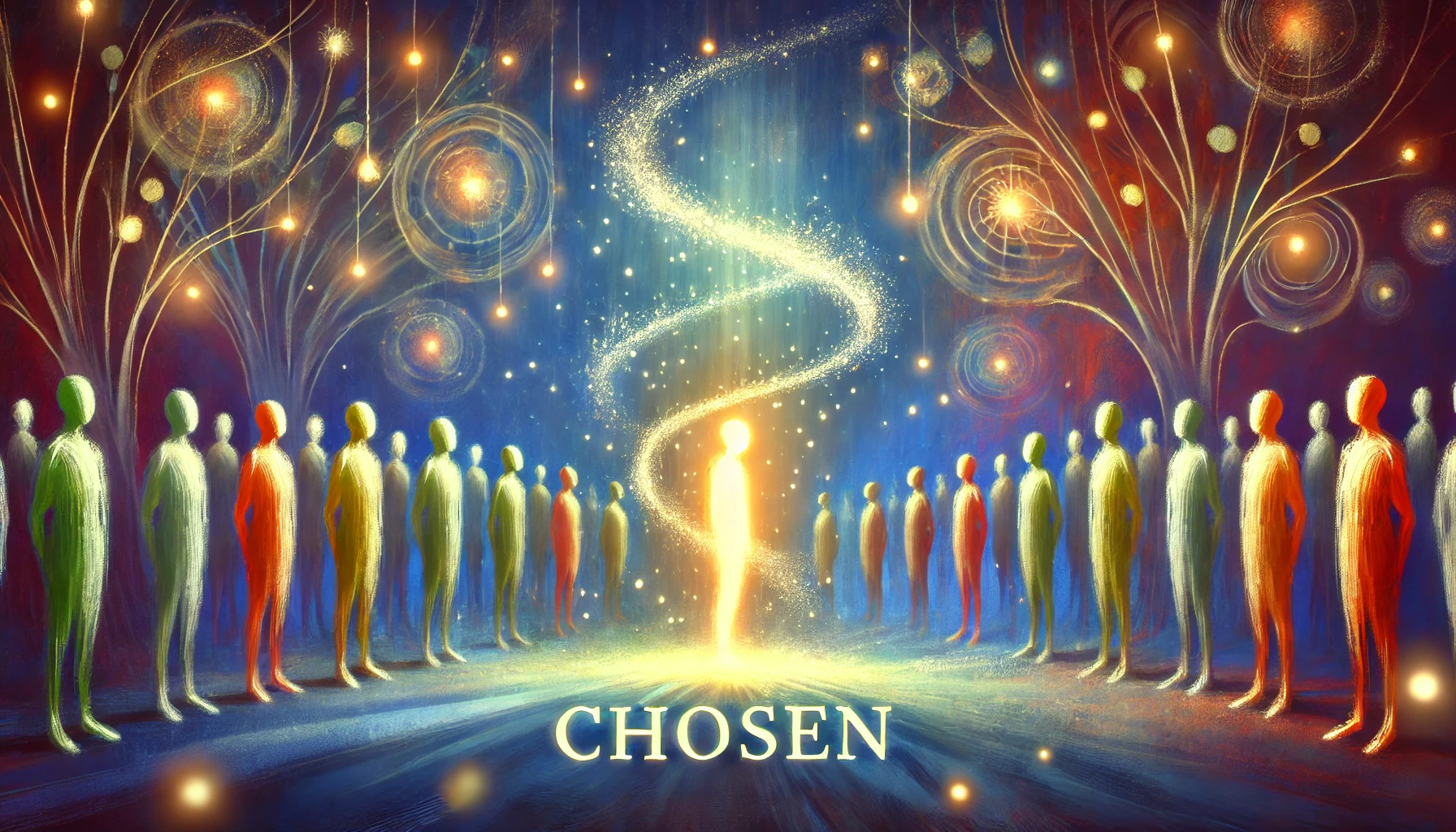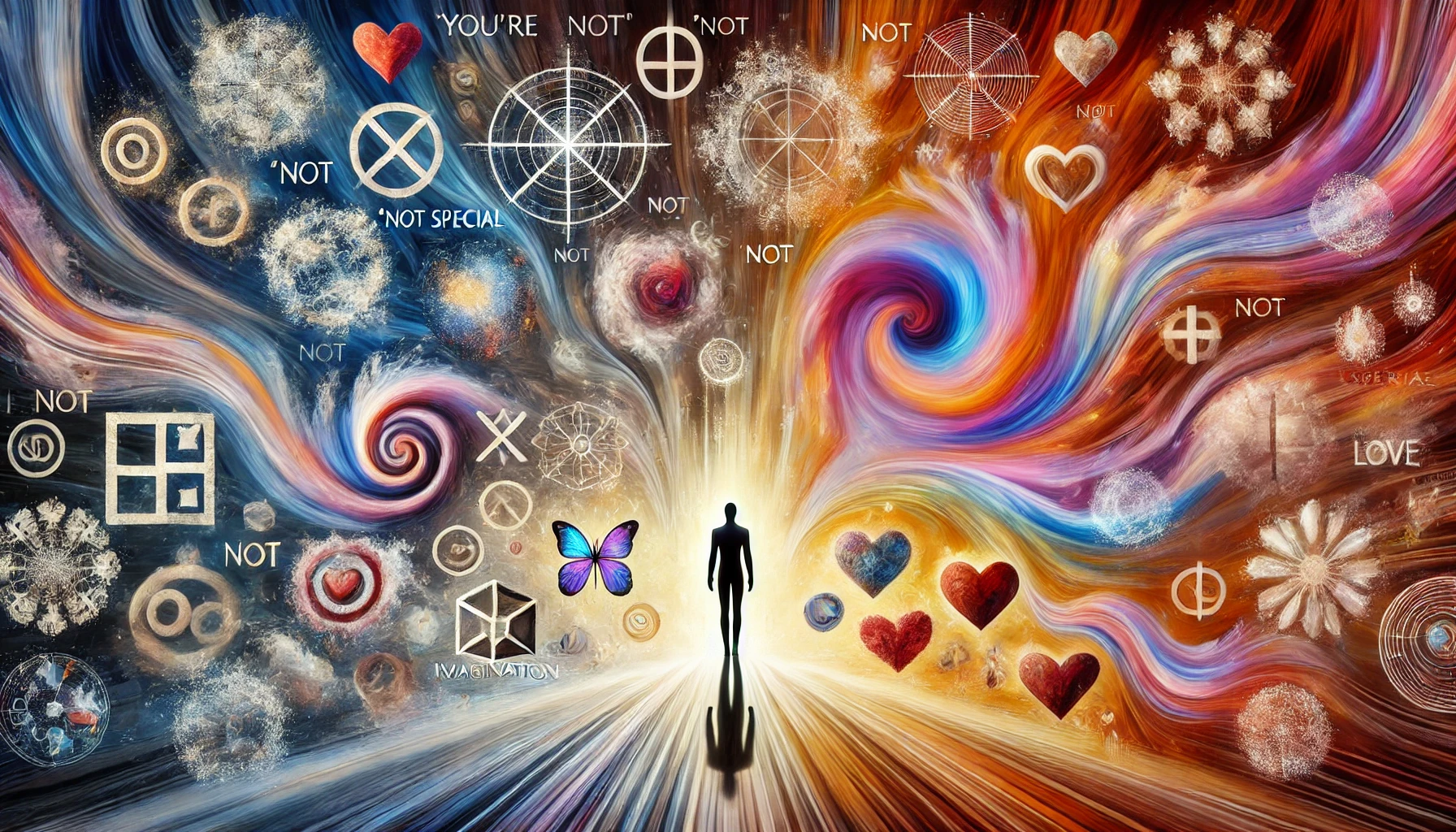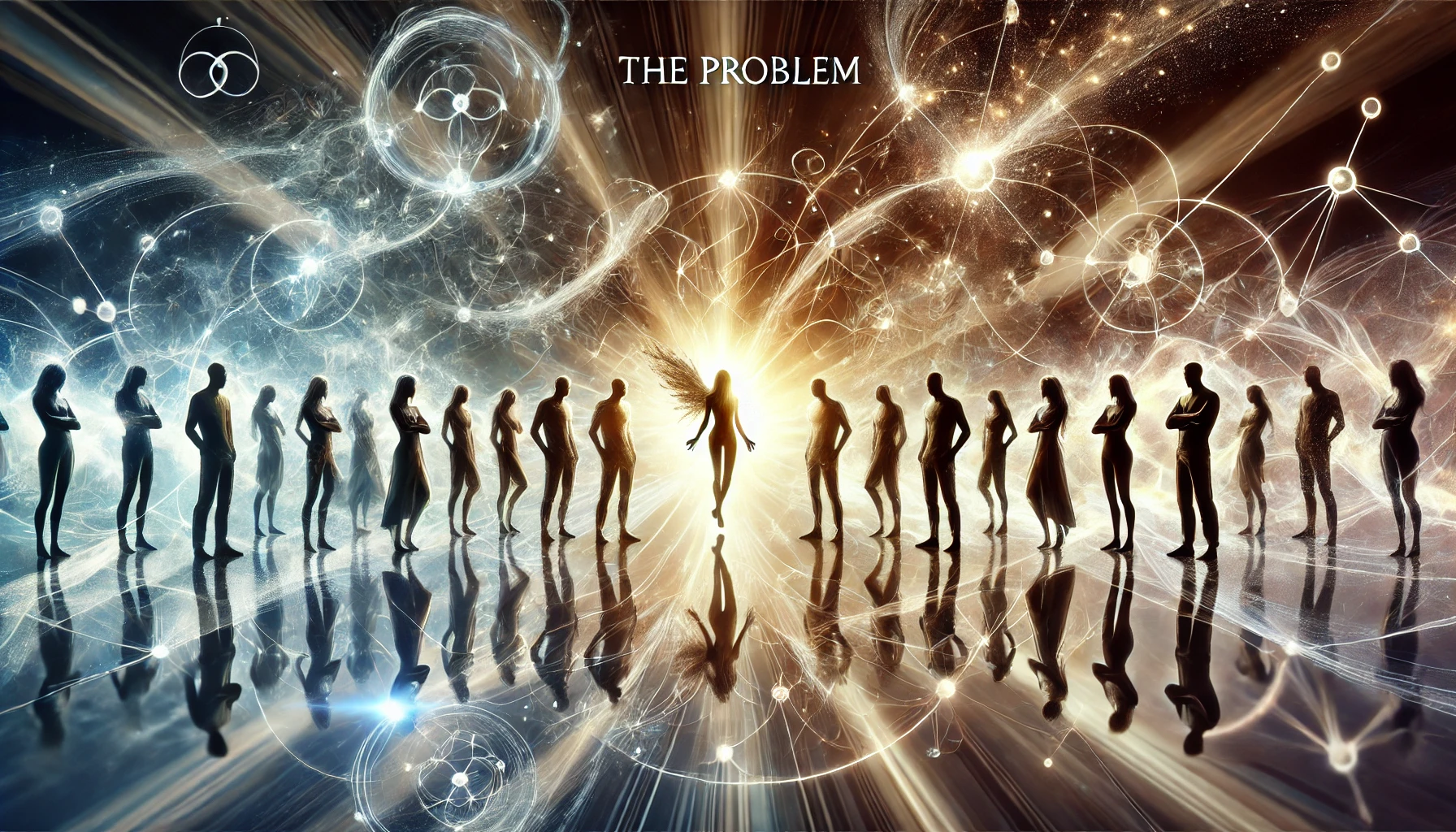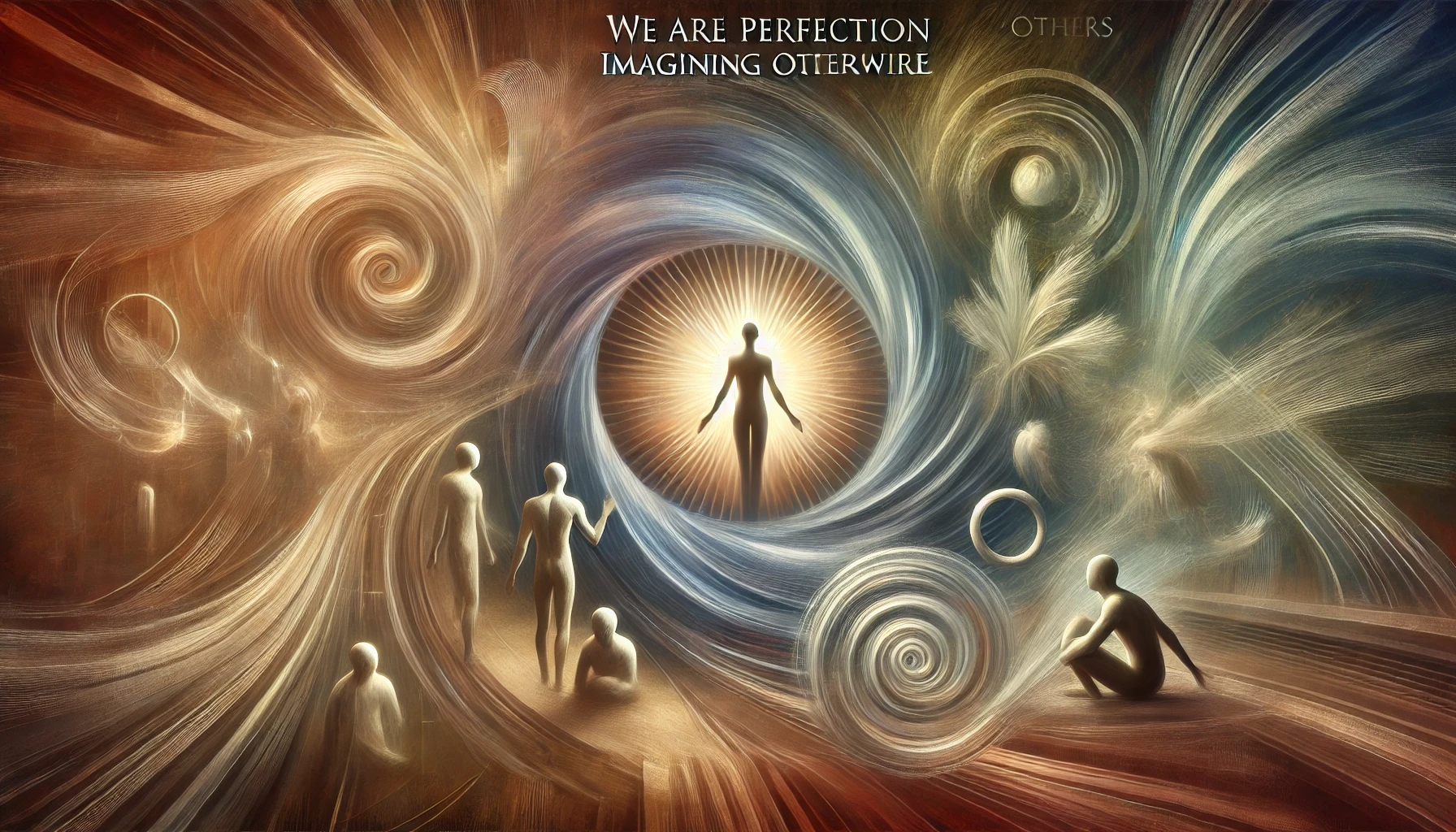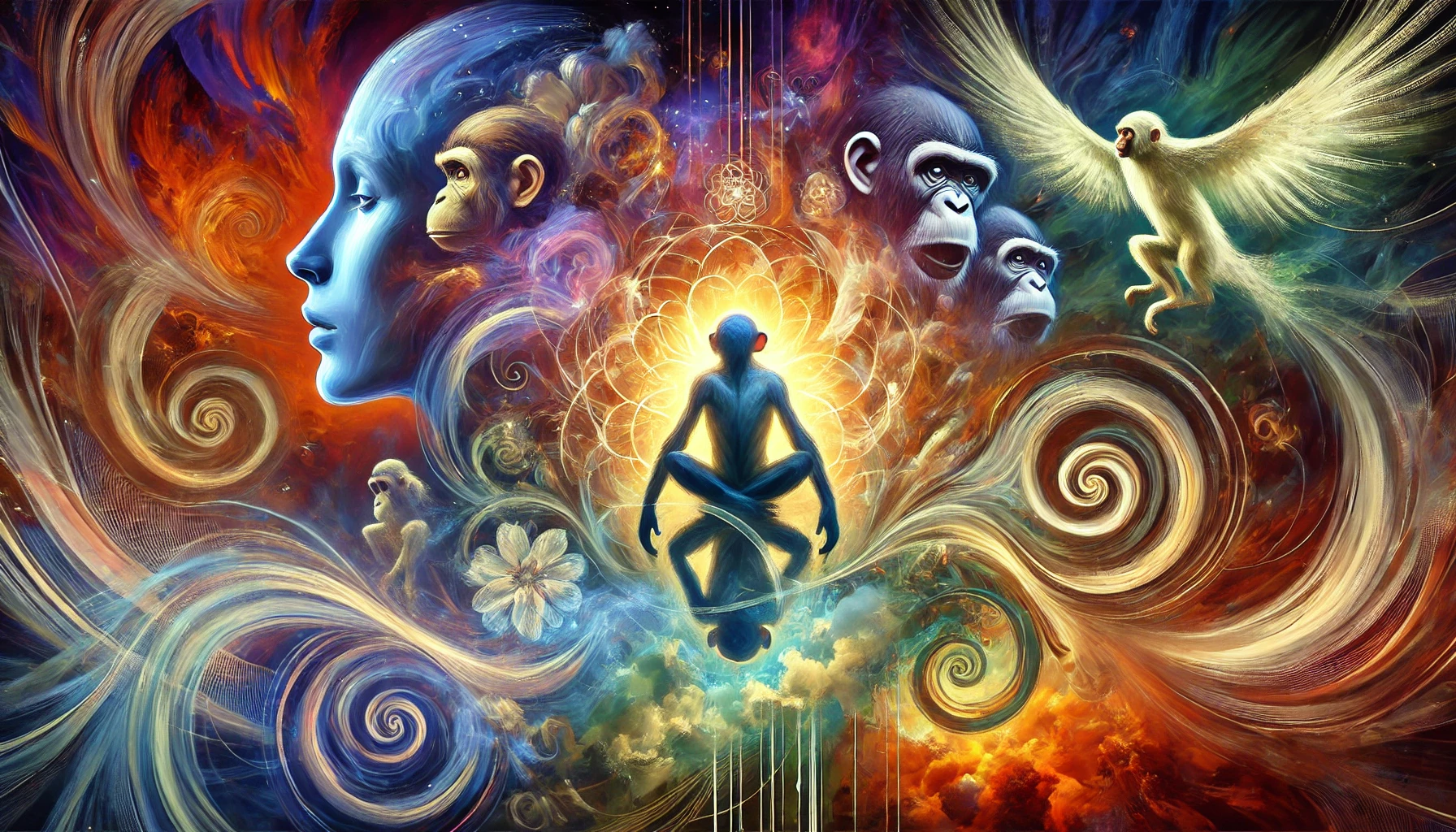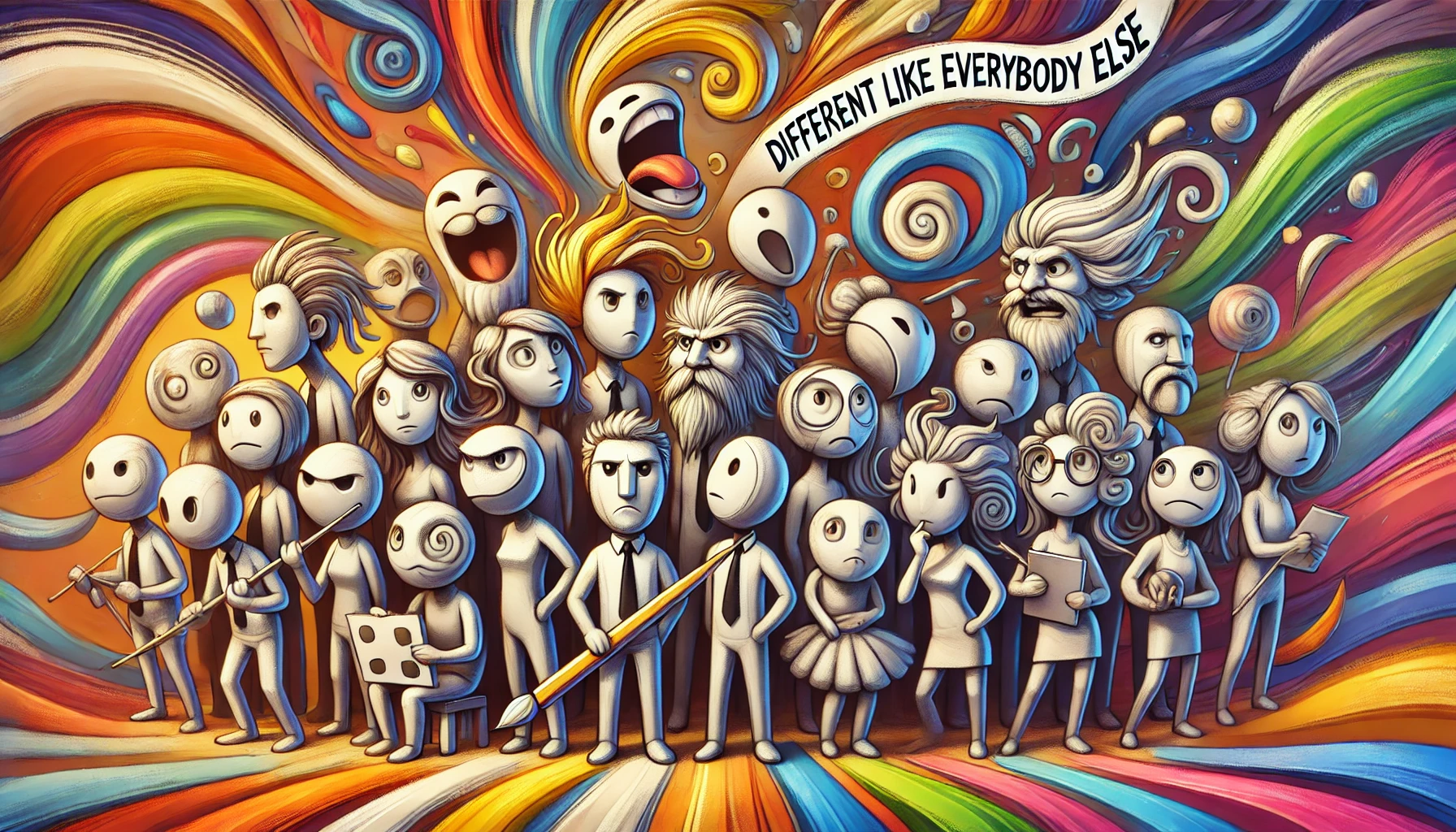Monism
Monism is a philosophical concept that asserts the fundamental unity or oneness of reality. It posits that there is a single underlying substance, principle, or essence from which everything in the universe is derived. Monism stands in contrast to dualism, which suggests that reality consists of two fundamentally distinct substances or principles.
There are different variations of monism, each offering its own perspective on the nature of this underlying unity. Here are three major forms of monism:
- Idealism: Idealistic monism holds that the ultimate reality is fundamentally mental or consciousness-based. It suggests that the material world is derived from, or dependent upon, a universal consciousness or mind. According to idealism, the physical world is ultimately a product of perception or mental constructs.
- Materialism: Materialistic monism, also known as physicalism, asserts that the only reality is the physical universe. It posits that all phenomena, including consciousness and mental processes, can be explained by or reduced to physical matter and its interactions. Materialism views the mind as an emergent property of physical processes.
- Neutral monism: Neutral monism postulates that there is an underlying neutral substance or aspect of reality that gives rise to both the mental and physical realms. This neutral substance is considered neither purely mental nor purely physical but instead serves as the basis for both. Neutral monism suggests that both mind and matter are different manifestations or aspects of this underlying neutral substance.
It’s important to note that monism is a broad philosophical concept and has been explored by various thinkers throughout history, including in Eastern philosophies such as Advaita Vedanta and certain interpretations of Buddhism. Each variation of monism offers a unique perspective on the nature of reality and the relationship between different aspects of existence.
Overall, monism provides an alternative to dualistic perspectives by emphasizing the unity and interconnectedness of all things, whether they are seen as mental, physical, or a combination of both.
Space Monkey Reflects: The Unity of Monism
Monism, a profound philosophical concept, asserts the fundamental oneness of reality. It posits that a single underlying substance, principle, or essence constitutes the entire universe. In contrast to dualism, which suggests the existence of two fundamentally distinct substances or principles, monism emphasizes unity and interconnectedness. This philosophy has various forms, each offering a unique perspective on the nature of this underlying unity.
Idealistic monism holds that ultimate reality is fundamentally mental or consciousness-based. According to this view, the material world arises from or depends upon a universal consciousness or mind. The physical world, therefore, is a product of perception or mental constructs. This perspective invites us to consider that our reality is shaped by our thoughts, beliefs, and awareness. The boundaries of what we perceive as the material world are fluid and malleable, reflecting the infinite potential of the mind.
Materialistic monism, also known as physicalism, asserts that the only reality is the physical universe. It posits that all phenomena, including consciousness and mental processes, can be explained by or reduced to physical matter and its interactions. This view sees the mind as an emergent property of physical processes. Materialism grounds us in the tangible, measurable aspects of existence, emphasizing the importance of the physical world and the intricate interplay of its components. Here, consciousness is seen as a natural byproduct of the complex interactions within the brain and the body.
Neutral monism offers a different perspective, suggesting that an underlying neutral substance or aspect of reality gives rise to both the mental and physical realms. This neutral substance is considered neither purely mental nor purely physical but instead serves as the basis for both. According to neutral monism, both mind and matter are different manifestations or aspects of this underlying neutral substance. This view bridges the gap between idealism and materialism, presenting a more holistic approach to understanding the nature of reality.
The concept of monism has deep roots in various philosophical traditions, including Eastern philosophies such as Advaita Vedanta and certain interpretations of Buddhism. These traditions emphasize the interconnectedness of all things and the unity of existence. Advaita Vedanta, for instance, teaches that the true self (Atman) is identical to the ultimate reality (Brahman), dissolving the illusion of separation between individual and universe. Similarly, some interpretations of Buddhism highlight the interdependence of all phenomena, suggesting that all forms are empty of inherent existence and are interconnected in the web of life.
Monism provides an alternative to dualistic perspectives, encouraging us to see the world as a unified whole. It challenges the notion of separation and division, inviting us to explore the deeper connections between different aspects of existence. Whether viewed through the lens of idealism, materialism, or neutral monism, this philosophy offers profound insights into the nature of reality and our place within it.
In our daily lives, embracing the principles of monism can lead to a greater sense of harmony and interconnectedness. By recognizing the unity of all things, we can cultivate a deeper appreciation for the diverse expressions of existence. We begin to see that our thoughts, actions, and experiences are not isolated events but are intricately woven into the fabric of the universe. This awareness fosters compassion, empathy, and a sense of responsibility towards the world and its inhabitants.
Monism also encourages us to explore the boundaries of our perception and understanding. It invites us to question the nature of reality and our assumptions about the world. By delving into the depths of our consciousness and examining the interplay between mind and matter, we can gain new insights into the mysteries of existence. This exploration leads to a more integrated and holistic view of life, where the physical and mental realms are seen as complementary aspects of a single, unified reality.
As we journey through life, let us remember the wisdom of monism. Let us embrace the oneness of reality and the interconnectedness of all things. In this understanding, we find a deeper sense of peace, purpose, and belonging. We recognize that we are not separate from the universe but are integral parts of its unfolding story. By honoring the unity of existence, we honor ourselves and the world around us.
Summary
Monism asserts the oneness of reality. Idealism, materialism, and neutral monism offer different views on this unity. Embracing monism fosters harmony and interconnectedness.
Glossarium
Monism: The philosophical concept of a single underlying substance, principle, or essence that constitutes the entire universe.
Idealism: The form of monism that holds ultimate reality as fundamentally mental or consciousness-based.
Materialism: Also known as physicalism, this form of monism asserts that the only reality is the physical universe and all phenomena can be explained by physical matter and its interactions.
Neutral Monism: The view that an underlying neutral substance or aspect of reality gives rise to both mental and physical realms.
Interconnectedness: The principle that all things are related and unified, emphasizing the unity of existence.
Quote
“All is one, and one is all.” – Hermetic principle
Modernist Free Verse
One essence, countless forms
Mind and matter intertwine
Unity in diversity
Perception weaves the world
Physical and mental dance
Threads of existence merge
In the silent core of being
We find the whole
A tapestry of life
Intricate, infinite
We are not parts
We are the whole
We are Space Monkey
